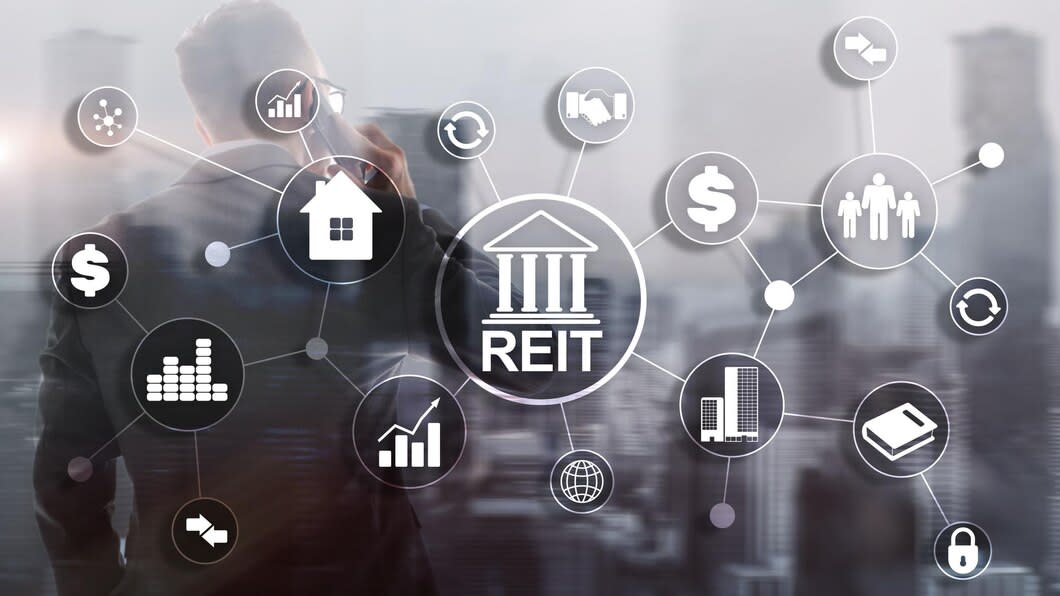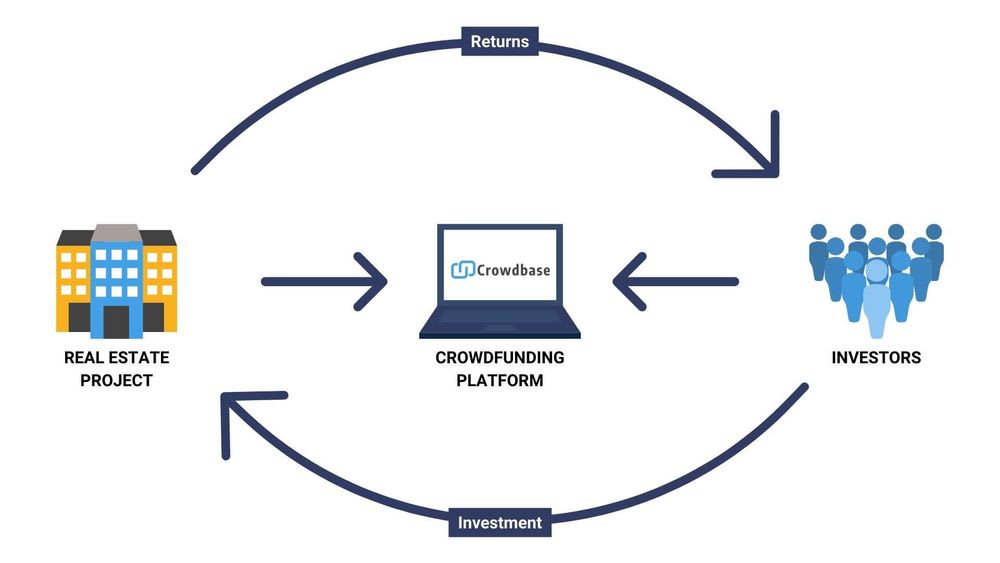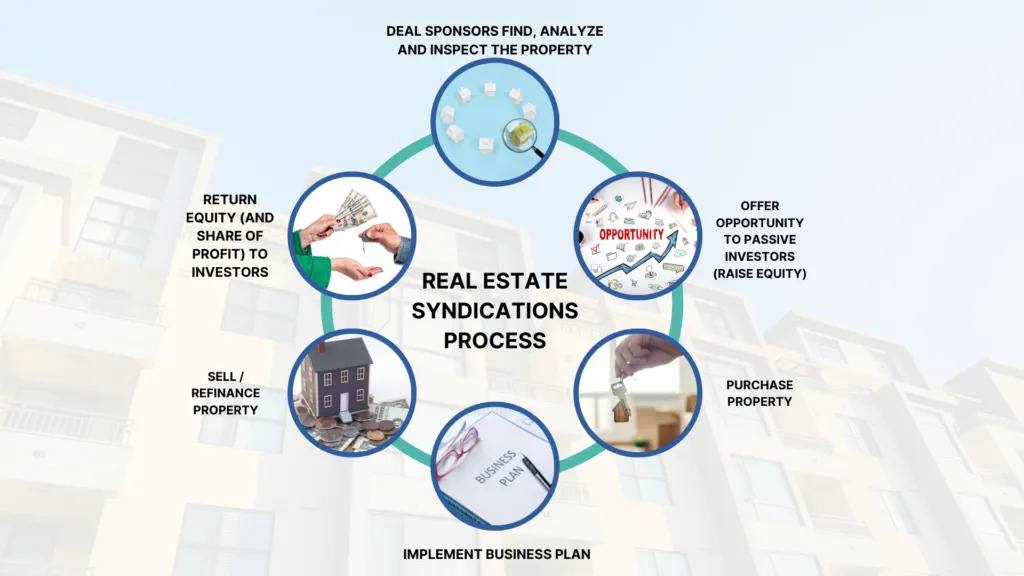Puerto Rico flourished into a real estate investment haven following the introduction of Act 60 in 2019, which provided significant tax incentives for investors. With its stunning landscapes and growing tourism industry, the island has attracted high-net-worth individuals seeking lucrative opportunities. Understanding the most common real estate investment vehicles used in Puerto Rico can give investors a strategic edge in maximizing returns while entering the Puerto Rican real estate market.
This blog will outline the top 10 investment vehicles, detailing how each works, the associated risks, and the potential they offer in generating returns for any investor looking to capitalize on Puerto Rico's thriving real estate landscape.
Key Takeaways
- Puerto Rico offers numerous real estate investment vehicles with distinct risks and rewards.
- Direct property ownership and development projects involve active management and high capital.
- REITs, mutual funds, and ETFs provide liquidity and lower barriers for passive investors.
- Act 60 tax incentives significantly enhance the potential for returns in Puerto Rico's real estate market.
1. Direct Property Ownership
Direct property ownership is the most traditional form of real estate investment, involving purchasing residential, commercial, or vacation properties. This vehicle allows investors to generate income through rental payments and benefit from property appreciation. However, it requires a high upfront investment and ongoing maintenance and carries the risk of market fluctuations.
For instance, buying a beachfront home in Dorado would require significant capital for purchase and potential renovations. As the property appreciates, the investor can earn rental income from vacationers while benefiting from long-term value growth, making it an attractive option in Puerto Rico's sought-after locations.
2. Real Estate Investment Trusts (REITs)
REITs allow investors to access real estate markets without owning physical properties. By purchasing shares in a publicly traded REIT, investors receive dividends from rental income generated by a diversified property portfolio. REITs offer liquidity and lower barriers to entry but are subject to market volatility and changes in interest rates.
In Puerto Rico, an investor might buy shares in a REIT that owns commercial properties, such as office buildings in San Juan. The REIT pools funds from multiple investors, and shareholders receive a portion of the profits from the portfolio's income, making this a more accessible way to invest in Puerto Rican real estate.
Types of REITs
Understanding the different types of REITs can help investors make informed decisions about the best real estate investment vehicle for their goals. REITs generally fall into three categories:
-
Equity REITs
-
These REITs own and operate income-producing properties such as apartments, office buildings, shopping centers, and hotels.
-
Investors earn returns primarily through rental income and property appreciation.
-
Example: A Puerto Rico-based REIT may own commercial properties in San Juan, generating revenue from leasing office spaces.
-
-
Mortgage REITs (mREITs)
-
Instead of owning physical properties, these REITs provide financing for real estate transactions by investing in mortgages and mortgage-backed securities.
-
Investors earn returns from interest income on the loans provided.
-
Example: An mREIT could fund home loans for luxury beachfront properties in Aguadilla, Puerto Rico, earning revenue from mortgage payments.
-
-
Hybrid REITs
-
These REITs combine the strategies of equity and mortgage REITs by both owning properties and investing in real estate debt.
-
Investors benefit from a mix of rental income and interest income.
-
Example: A hybrid REIT may own residential complexes in Dorado while also financing commercial real estate projects across Puerto Rico.
-
Matrix for REITs
| Type of REIT | Primary Investment | Revenue Source | Example |
|---|---|---|---|
| Equity REITs | Own and manage properties | Rental income and appreciation | Office buildings, malls, hotels in Puerto Rico |
| Mortgage REITs | Provide loans for real estate | Interest income from mortgages | Home loans for beachfront properties |
| Hybrid REITs | Own properties + provide real estate financing | Rental + interest income | Mixed-use developments, resorts |
3. Real Estate Mutual Funds
Real estate mutual funds offer professional management of a diversified portfolio that includes REITs, direct property investments, and real estate companies. This vehicle is ideal for passive investors looking for steady growth and diversification. However, management fees and market risks can affect overall returns.
An investor in Puerto Rico might allocate $5,000 into a mutual fund focusing on Caribbean real estate, including properties in Puerto Rico. The fund manager handles all investment decisions and the investor benefits from dividends and potential value appreciation without the need to manage properties directly.
4. Real Estate ETFs (Exchange-Traded Funds)
Real estate ETFs provide a flexible way to invest in real estate-related assets by buying shares traded on public exchanges. ETFs often include REITs or real estate stocks and offer lower fees than mutual funds. Investors benefit from liquidity but must manage the risks associated with stock market fluctuations.
An investor interested in Puerto Rican real estate might buy shares of an ETF focused on Latin American or Caribbean real estate markets. These shares can be easily bought or sold, providing flexibility and an opportunity to profit from rising real estate values in Puerto Rico without owning physical property.
5. Real Estate Crowdfunding
Image Source: crowdbase.eu
Real estate crowdfunding allows individuals to pool their money online to invest in real estate projects, such as new developments or renovations. This method requires lower initial capital but carries higher risks due to potential project delays and market conditions.
For example, an investor could contribute $1,000 to a crowdfunding platform for a luxury condo development in Rincon. The pooled funds help complete the project, and the investor earns a share of the profits once the condos are sold or rented, offering a potentially high return in a popular vacation destination.
6. Private Equity Real Estate Funds
Professional firms manage private equity real estate funds and target high-value properties or development projects. These funds typically require substantial minimum investments and are suited for accredited investors seeking long-term returns. Risks include a lack of liquidity and dependence on the fund manager's expertise.
In Puerto Rico, an accredited investor might join a private equity fund focusing on luxury resorts like Bahia Beach. The fund managers use pooled capital to acquire and develop these resorts, providing high returns from property appreciation and rental income once the resorts are operational.
7. Real Estate Syndications
Image Source: whitecoatholdings.com
Real estate syndications pool funds from multiple investors to acquire large properties. A sponsor manages the investment and distributes rental income or sales profits to the investors. While syndications provide access to larger deals, they depend on the sponsor's expertise and can carry market risks.
An example in Puerto Rico might be a syndication to purchase a luxury apartment complex in San Juan. The sponsor handles management, and the investors receive rental income and a share of the profits when the property is sold, offering the potential for significant returns without hands-on involvement.
8. 1031 Exchange
The 1031 Exchange is a tax-deferred strategy allowing investors to sell a property and reinvest in another without paying capital gains taxes. This vehicle offers significant tax savings but requires strict compliance with IRS regulations and deadlines.
For example, an investor could sell a condo in Old San Juan and use the proceeds to purchase a property in Condado, deferring the capital gains tax. This allows the investor to grow their real estate portfolio while minimizing tax liabilities, provided they meet the exchange deadlines and requirements.
Best 1031 Exchange Investments in Puerto Rico
Puerto Rico offers a wide range of attractive investment opportunities for 1031 Exchange investors. High-demand areas like Old San Juan, Condado, and Dorado are prime locations for real estate transactions, especially for those looking to leverage the benefits of a 1031 exchange Puerto Rico.
Key Investment Areas:
-
Old San Juan: Known for its historic charm and vibrant tourism, this area offers prime properties such as colonial-style buildings and boutique hotels that are perfect for commercial and residential investments.
-
Condado: A popular beachfront neighborhood, ideal for vacation homes and luxury apartments. Its proximity to the capital, San Juan, makes it a sought-after location for high-end real estate investors.
-
Dorado: Known for its upscale resorts and golf communities, Dorado presents opportunities for multifamily units and vacation rentals, particularly attractive for 1031 exchange investors.
Property Types Ideal for 1031 Exchange in Puerto Rico:
-
Vacation Homes: Properties in high-tourism areas like Condado and Rincon provide rental income potential and long-term appreciation.
-
Commercial Buildings: Office spaces and mixed-use properties in business districts are suitable for 1031 exchange Puerto Rico investments, offering strong rental yields.
-
Multifamily Units: Multi-unit properties in desirable locations like Old San Juan offer steady rental income, making them perfect for 1031 exchanges.
9. Limited Partnerships (LPs)
Limited partnerships allow investors to provide capital to a general partner managing a real estate project. LPs are passive investments, with limited partners sharing profits without being involved in management. Risks include dependence on the general partner and project success.
In Puerto Rico, an investor might join a limited partnership focused on developing a luxury hotel in Dorado. The general partner handles all project aspects, and the limited partners receive a portion of the profits from hotel operations or eventual sales, making it a suitable option for hands-off investors.
10. Real Estate Development Projects
Real estate development projects involve direct investment in new construction or major renovations. Investors collaborate with builders and architects to complete the project. This vehicle requires significant capital and carries development risks such as delays or cost overruns.
For example, an investor could participate in developing a new residential community in Palmas del Mar. By funding the construction phase, the investor can earn substantial returns once the homes are sold, making this a high-reward option in growing areas of Puerto Rico.
Table of the Real Estate Investment Vehicles
Here is a summarized view of the top 10 investment vehicles in Puerto Rico:
|
Investment Vehicle |
Mechanics |
Risk |
Potential for High Returns |
|
Direct Property Ownership |
Purchase physical property to generate rental income or capitalize on appreciation. |
High capital requirement, maintenance, and market volatility. |
High returns from appreciation and rental income in growing markets. |
|
Real Estate Investment Trusts (REITs) |
Purchase shares in a REIT; income is generated from rental properties owned by the trust. |
Market volatility and interest rate changes. |
Regular dividend income and potential capital gains from property value appreciation. |
|
Real Estate Mutual Funds |
Invest in a diversified portfolio of real estate-related assets managed by a professional. |
Management fees, market risks, and possible underperformance. |
Steady growth with lower risk due to diversification. |
|
Real Estate ETFs (Exchange-Traded Funds) |
Buy and sell shares of an ETF that holds real estate assets or REITs, offering liquidity. |
Stock market fluctuations and potential liquidity risks. |
Lower fees, liquidity, and potential for capital appreciation in real estate markets. |
|
Real Estate Crowdfunding |
Pool money online with other investors to fund real estate projects. |
Project delays, market risks, or failure of the development. |
High potential returns from successful developments. |
|
Private Equity Real Estate Funds |
Accredited investors pool capital in a fund managed by professionals for high-value properties. |
High minimum investment and long lock-up periods with limited liquidity. |
High returns from luxury property developments and rental income. |
|
Real Estate Syndications |
Investors pool funds to purchase large properties managed by a sponsor. |
Dependence on sponsor’s expertise and market risks. |
Substantial returns from large-scale real estate deals and rental income. |
|
1031 Exchange |
Sell a property and reinvest proceeds into a new property, deferring capital gains taxes. |
Non-compliance with IRS regulations can lead to significant tax liabilities. |
Significant tax savings, allowing for larger reinvestments. |
|
Limited Partnerships (LPs) |
Invest capital in a partnership where the general partner manages the real estate project. |
Reliance on general partner and overall project success. |
High returns from profitable development or operational real estate projects. |
|
Real Estate Development Projects |
Invest directly in the construction or renovation of new real estate projects. |
Development delays, cost overruns, and market risks. |
Substantial profits from selling developed properties in desirable locations. |
Classifying Investment Vehicles
You might be curious about which investment vehicles require you to purchase tangible property and which are more passive, where you buy shares or invest in a pooled fund. Here's a concise overview of the classification:
Investment Vehicles That Require the Investor to Buy a Property
These are considered active investments. In these vehicles, investors are directly involved in purchasing and often managing physical properties.
- Direct Property Ownership
- Real Estate Development Projects
- 1031 Exchange
- Limited Partnerships (LPs)
- Real Estate Syndications
Investment Vehicles That Do Not Require the Investor to Buy a Property
These are considered passive investments. Investors contribute capital through shares or pooled funds without needing to directly manage or purchase tangible property.
- Real Estate Investment Trusts (REITs)
- Real Estate Mutual Funds
- Real Estate ETFs (Exchange-Traded Funds)
- Real Estate Crowdfunding
- Private Equity Real Estate Funds
Luxury Properties and Houses for Sale in Puerto Rico
Active investments in real estate are a crucial step in building a successful investment portfolio in Puerto Rico. If you're looking for a property that will appreciate over time, reach out to Christie's International Real Estate Puerto Rico for our top-tier listings and luxury properties for sale. Below is a curated selection of recommended luxury properties and houses worth considering for your next investment.
2021 CALLE ITALIA, SAN JUAN, PR 00911
This is a rare opportunity to own a beachfront building lot in Ocean Park. It offers 8,500 square feet of land with unparalleled views, direct beachfront access, and permitted plans for a custom home in one of Puerto Rico's most sought-after neighborhoods. The lot is within walking distance of top schools, restaurants, parks, and hotels.
9 CALLE DEL MERCADO, SAN JUAN, PR 00901
Own a century-old gem in the heart of Old San Juan, featuring three units, a large private rooftop with stunning views of Castillo San Felipe del Morro, La Perla, and the cruise ship port, all steps away from historic landmarks like Calle San Sebastian and the Catedral Basilica de San Juan Bautista.
2073 CACIQUE ST SAN JUAN PR, 00911
This 3,221 sq ft renovated San Juan beachfront home offers 6 bedrooms, 8 bathrooms, open living spaces, a guest suite, a poolside retreat, and a prime coastal location.
PHA COSTAMAR CONDOMINIUM #PHA SAN JUAN PR, 00913
Experience unparalleled luxury with this one-of-a-kind 2-story beachfront penthouse in Punta Las Marias, featuring a private rooftop oasis with pool and gym, breathtaking ocean views, over 3,000 sq. ft. of sophisticated living space, and flexible payment options including cash, Bitcoin, or partial seller financing.
Conclusion
Puerto Rico's thriving real estate market, bolstered by tax incentives under Act 60, offers diverse investment vehicles catering to active and passive investors. Whether through direct property ownership or more hands-off strategies like REITs and real estate crowdfunding, each option provides unique opportunities and risks. By leveraging these vehicles, investors can capitalize on the island's growing tourism, luxury market, and economic development while maximizing investment returns.
At Christie's International Real Estate Puerto Rico, we are dedicated to helping you navigate the island's flourishing real estate market, whether you're looking to buy, sell, or rent out your property. Our expert team is committed to providing personalized solutions that maximize your investment and meet your unique goals. Contact us today to take the next step in securing your dream property for your home!
FAQs
Is Puerto Rico good for investment property?
Yes, Puerto Rico is an excellent location for investment property, thanks to its favorable tax incentives, strategic location within the U.S. jurisdiction, and growing tourism sector. The island has seen increased demand for luxury real estate and rental properties, making it a prime market for long-term property appreciation and income generation. Puerto Rico's natural beauty and vibrant culture also attract steady visitors, providing investors with ample vacation and rental property market opportunities.
What are the incentives for buying property in Puerto Rico?
One of the biggest incentives for qualifying investors to buy property in Puerto Rico is the tax advantages provided under Act 60, which offers significant reductions in income and capital gains taxes. Additionally, the island's designation as a U.S. territory allows for easier real estate transactions and protections under U.S. law, while foreign investors benefit from favorable residency programs. Investors may also take advantage of lower property taxes than other U.S. states, making it a financially attractive destination for real estate investments.
How is the rental market in Puerto Rico?
Puerto Rico's rental market is thriving, especially in high-demand areas like San Juan, Dorado, and Rincon, which are driven by tourism, business relocation, and the growing expatriate community. Luxury vacation rentals, in particular, generate high returns due to the influx of short-term visitors. There is also increasing demand for long-term rentals, particularly from professionals moving to the island for work or tax incentive benefits. This creates opportunities for consistent rental income across various property types.





















